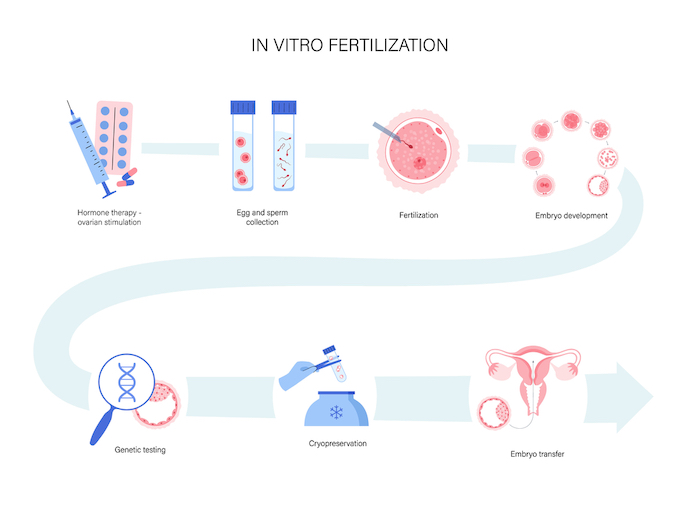Why are three cycles of IVF recommended?
If you have been researching or discussing options for in vitro fertilization (IVF) at multiple fertility clinics, you may have noticed that many offer three cycles packages.
Rest assured that this is not some kind of conspiracy or superstition, according to which three is a lucky number. IVF centers may recommend multiple cycles of IVF treatment for various scientific reasons.
Each IVF process can be divided into the following stages:
- Hormonal Stimulation
- Oocyte pick up
- Insemination
- Cultivation of embryos
- Embryo Transfer
The decision on how many IVF cycles to be performed is generally based on individual circumstances and medical considerations.
While three cycles is a typical number mentioned, it must be noted that the number of recommended cycles may vary depending on factors such as the patient’s age, the underlying fertility issues, the response to previous IVF cycles, and the selected clinic's practices.

These are five of the most common reasons why fertility specialists may suggest more than one cycle of IVF:
- To increase the chances of success
IVF success rates can vary from one cycle to another and are influenced by factors such as the patient's age, the quality of the retrieved embryos, and the cause of infertility. By undergoing multiple cycles, the chances of achieving a successful pregnancy may improve.
- To gain additional information
Each IVF cycle provides fertility doctors with valuable information about your response to the treatment. Clinicians may have to adjust the IVF protocol based on the results of previous cycles in order to increase the chances of success at subsequent attempts. If a cycle does not lead to IVF pregnancy and birth, it can offer valuable insights into potential issues that might be affecting fertility. Doctors can use this information to address specific concerns in subsequent cycles.
- To ease the financial burden
IVF can be expensive, and some clinics offer package deals or discounted rates for multiple cycles. This can make IVF treatment’s cost more financially feasible for some couples or individuals.
- To provide psychological support
Going through infertility treatment can be emotionally draining. For some patients, the knowledge that they have several cycles planned can provide psychological relief and reduce their stress levels during the process.
- To avoid wasting time
The older a woman undergoing IVF treatment is, the lower her chances of achieving a successful pregnancy, and the perspectives decline with each passing year. Therefore, multiple cycles very close to one another may be recommended to take advantage of the best possible chances while age is still not too advanced.
It's important to thoroughly discuss your options with the fertility specialist, who will explain the reasons behind the recommended number of IVF cycles.
Each person's situation is unique, and you should make the decision to undergo multiple cycles after carefully considering the potential benefits, risks, and financial implications.
Last but not least, exploring other fertility options and seeking a second opinion can also be beneficial in making an informed decision.
Sources:
- C Harrison and others, Patient willingness, preferences and decision-making about planning for three complete cycles of IVF/ICSI treatment, Human Reproduction, Volume 36, Issue 5, May 2021, Pages 1339–1352, https://doi.org/10.1093/humrep/deab040
- Meldrum, D. R., Silverberg, K. M., Bustillo, M., & Stokes, L. (1998). Success Rate with Repeated Cycles of In Vitro Fertilization–Embryo Transfer. Fertility and Sterility, 69(6), 1005–1009. https://doi.org/10.1016/s0015-0282(98)00083-1






